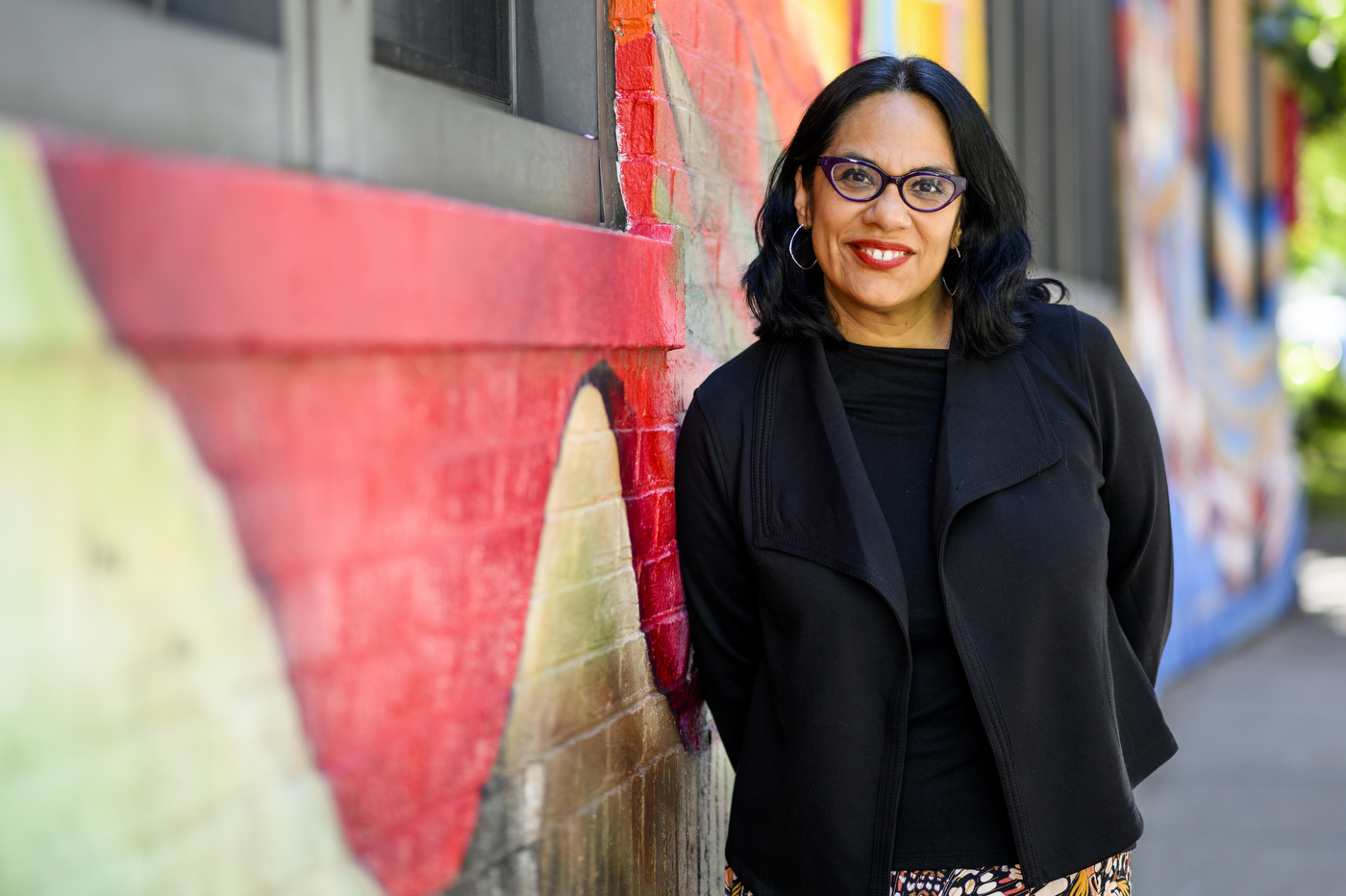Stand-up comedy and academic research converge in new speaker series ‘Latinxs and Comedy’

Northeastern University’s Latinx, Latin American and Caribbean Studies program will kick off a new speaker series, “Latinxs and Comedy,” with actress, author and activist Selenis Leyva.
Leyva’s appearance at 6 p.m. Thursday at Blackman Auditorium on the Boston campus will help celebrate National Hispanic Heritage Month, which runs through Oct. 15.
Leyva is best known for her role as Gloria Mendoza in the popular Netflix series “Orange Is the New Black.” She will talk about Afro Latina representation in comedy and in Hollywood.
The “Latinx and Comedy” series also celebrates the relaunch of the Latinx, Latin American and Caribbean Studies program at Northeastern.
“I think it’s really important for the speaker series to highlight the Latinx contribution both in terms of popular discussion, but also in an academic discussion,” says Isabel Martinez, the new director of the program.

The idea to hold a speaker series about comedy was intentional, according to Martinez, a Latinx youth immigration scholar who has been developing the New York Latinx Comedy Project for the last three years.
The project’s goal is to tell the rich history of Latinx stand-up comics in New York.
“Comedy, as a general field, has pretty much ignored Latinxs,” Martinez says. “The more contemporary seminal works [that] have been published in the last several years have completely ignored Latinxs.”
Martinez started the New York Latinx Comedy Project during the COVID-19 pandemic as a way to honor the legacy of her late husband, Angelo Lozada, a Puerto Rican comic who died in December 2019. Lozada had a big impact on the New York stand-up community and worked with Trevor Noah, former host of “The Daily Show,” in his later years.
The project, while personal, is important academic research, Martinez says. She has interviewed close to 40 Latinx comics.
Martinez says she has reached many conclusions from her research.
“One is that, in New York City, the stand-up comedy industry is really segregated,” she says.
Mainstream comedy clubs have been primarily located in Manhattan, she says.
“If you’re a Latinx stand-up comic, you’ve been primarily relegated to the outer boroughs and into the backs of restaurants and bars,” Martinez says.
There is also an untrue assumption, she says, that Latinx comics mostly perform in Spanish. Her research suggests otherwise.
She also found that Latinx comedians often opened for salsa bands in the 1960s and ’70s. Before that, they would work in theaters in the South Bronx doing primarily comedy skits and crowd work.
“If folks get more ethnic with their material, then their acceptance goes down,” Martinez says.
The “Latinx and Comedy” speaker series will host four more talks:
- In October, Albert Sergio Laguna, associate professor of ethnicity, race and migration and American studies at Yale University, will talk about the use of humor by exiles in Cuban diaspora in the U.S.
- In November, Martinez will talk about more than 50 years of Latinx stand-up comedy in New York.
- In February, Frances Negrón-Muntaner, award-winning filmmaker, writer, curator, scholar and professor at Columbia University, will speak about her report on the state of Latinos in comedy.
- The series will wrap up in March with a performance by stand-up comic Xasmin Garza.
Alena Kuzub is a Northeastern Global News reporter. Email her at a.kuzub@northeastern.edu. Follow her on Twitter @AlenaKuzub.






